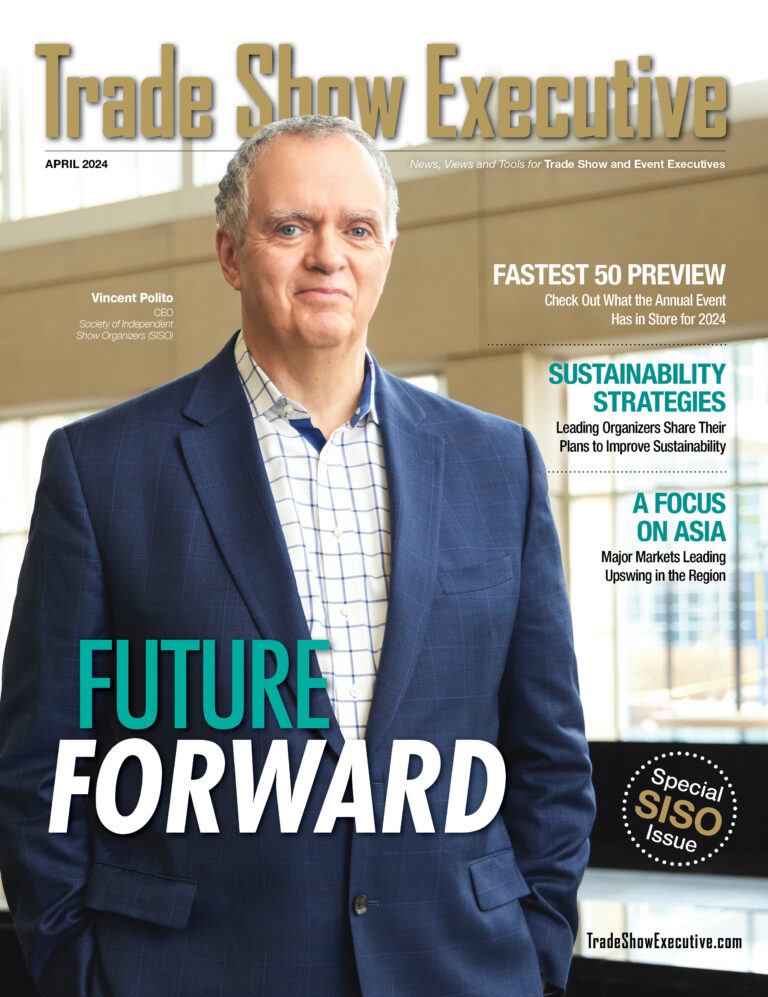Washington, DC – Testifying today before the Senate Appropriations Sub-Committee on Homeland Security, IAEE President Steven Hacker noted that the United States has become the “Blackberry” of international travel, having lost 30% of its market share since 2000 while worldwide travel has increased by 60 million visitors and competing nations have reaped the benefits.
“For the exhibitions and events industry, the last ten years has been a decade of lost opportunity and frustration,” he says. “Due to the difficulties that so many international visitors have had securing a U.S. visa, many international buyers are attending exhibitions and events in other nations, often purchasing products and services that are more expensive and not as well made as U.S. manufactured goods.”
Drawing data from the CEIR Study, The Economic Impact of International Non-Participation in the Exhibition Industry Due to U.S. Visa Issues conducted in 2011 by Oxford Economics, Hacker informed the committee that:
- Visa issues prevent 116,000 international visitors from attending U.S. exhibitions each year including 78,400 buyers and 37,900 exhibitors.
- By reducing visa barriers, the U.S. economy would realize increases in business sales just from U.S. events of about $3 billion a year.
- This would create over 17,500 jobs directly and 43,000 jobs indirectly.
- It would generate three quarters of a billion dollars in state and federal taxes.
Concluding his testimony, Hacker offered three key recommendations to the committee:
(1) Develop a comprehensive visa strategy designed from the ground up to support the mutual goals of enhancing both economic competitiveness and national security.
To achieve this objective, Hacker recommended the creations of a U.S. visa commission consisting of personnel drawn from the State Department, Commerce Department, and Homeland Security as well as executives recruited from the private sector. “Entrepreneurs who have built successful and sustainable businesses and who routinely face keen competition would be aptly suitable for this role,” he noted. “Much of what is wrong with the current program would never be tolerated if the visa and entry process was run as a commercial enterprise,” Hacker said.
(2) Ample evidence exists that many visa rejections are illogical, capricious and unfounded. Ultimate authority for the approval or denial of applicants must continue to reside with local consular officials, and ways to ensure consistency in the response to applications must be developed. Today there is none.
(3) The Visa Waiver Program should be expanded rapidly to include trading partners such as Brazil, Argentina, Chile and Poland who are most likely to buy U.S. products and services. The benefits are enormous and will materially reduce the stress on the visa and entry support systems. “Expanding the Visa Waiver Program frees desperately needed resources that could be applied elsewhere,” Hacker said.
Your Help is Needed
Senator Mary Landrieu is Chairwoman of the Sub-Committee and invited Hacker to testify today. Vice Chairman is Senator Frank Lautenberg (NJ). Other members of the sub-committee include Senator Daniel Inouye (HI), Senator Patrick Leahy (VT), Senator Patty Murray (WA), Senator Jon Tester (MT), Senator Dan Coats (Ranking) (IN), Senator Thad Cochran (MS), Senator Lisa Murkowski (AK), and Senator Jerry Moran (KS).
IAEE Members residing in states represented by a member of the sub-committee are urged to contact their senator to offer support of the IAEE recommendations in an email message or letter.
Reach Steven Hacker at (972) 458-8002 or shacker@iaee.com











